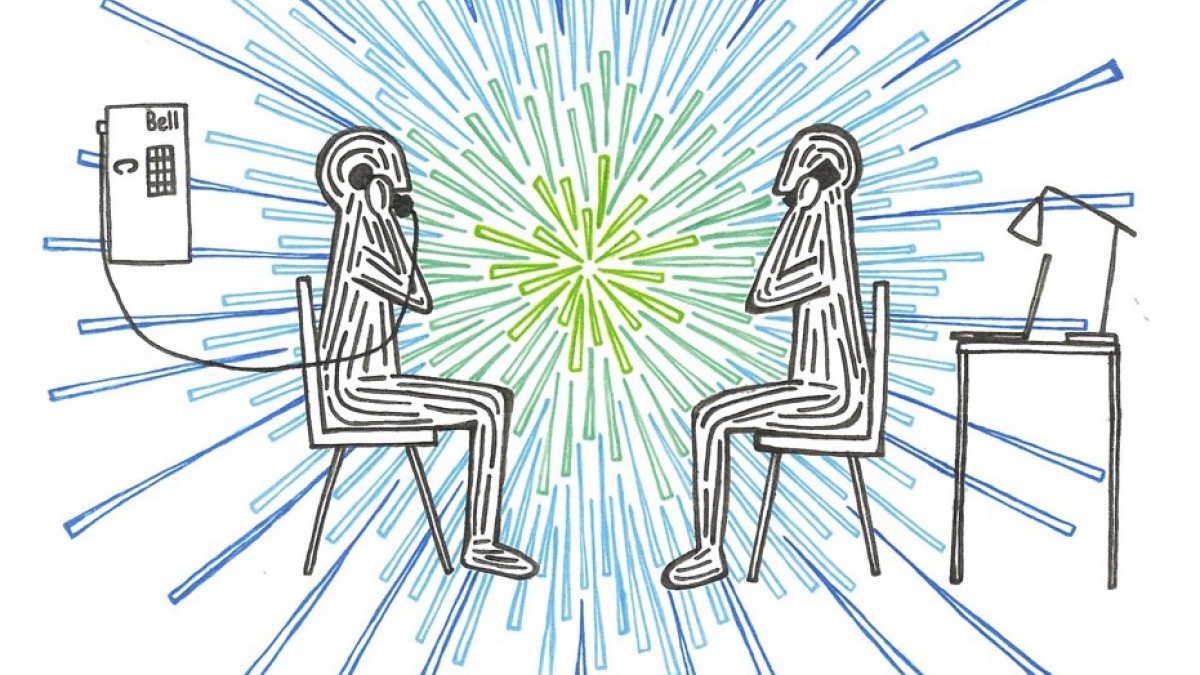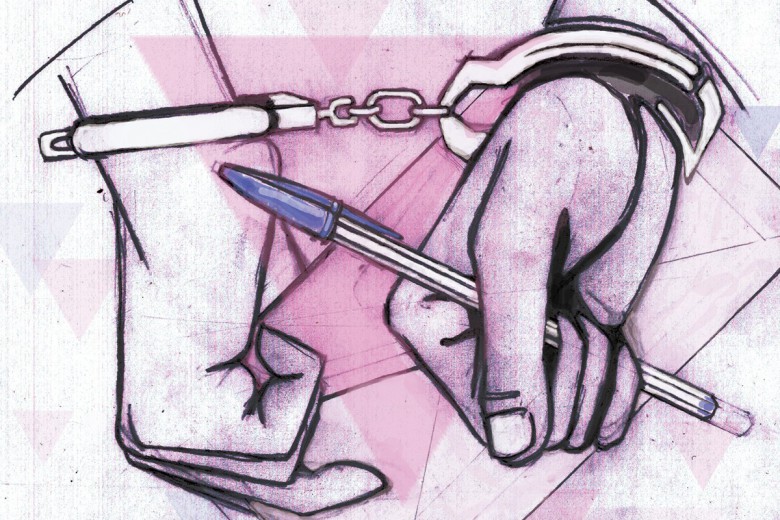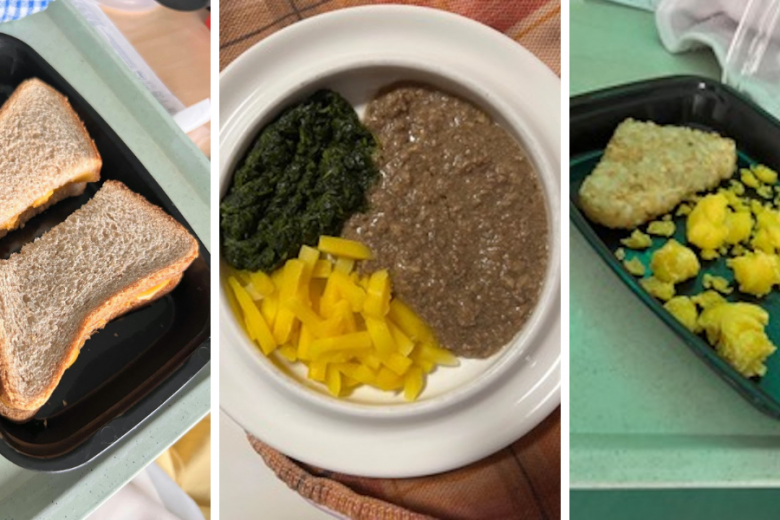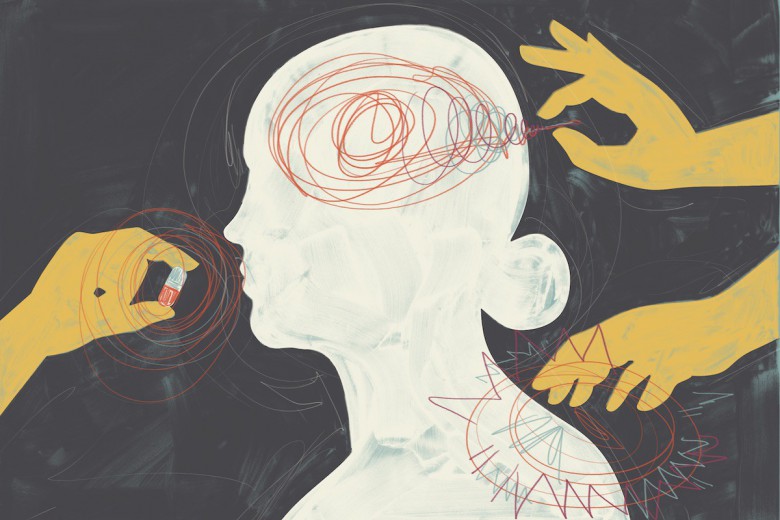We are best friends, and for several years, we’ve had to work hard to maintain our friendship while one of us is incarcerated in Ontario.
Staying connected and maintaining our friendship despite incarceration has been challenging, and we know our experiences are shared among incarcerated people and their families and friends who are trying to stay in touch with them. We’re revisiting the challenges we’ve faced navigating the federal and Ontario correctional systems to show the ways prisons try to cut incarcerated people off from their family and friends.
Anonymous (A): I remember the day you were arrested. I had no idea where you were. Your friends told me that you were in jail, but we didn’t know which one. There was no way for me to call you or figure out what institution you were in.
Anonymous (B): It was difficult to call you the first few weeks. After spending a night at the police station, I was brought to the jail. I was put on a COVID-19 intake range which meant I had minimal time out of the cell every other day. I needed to put money on my phone card to get a hold of you because I have to pay for every call I make unless it is a collect call. I had to wait for a friend to drop off money at the jail or send me a money order. I then put in the request form for the money to be transferred to my phone card, which took four days to process. I was not allowed visits while on the COVID range. I was stuck with three people in a cell; one person slept on the floor.
I was lucky to see two full days a week out of my cell at that time.
I was put on a normal range after 14 days of COVID isolation and had more time to access a phone, but the range only had three phones for 40 people. When there wasn’t a lockdown, we were only out of our cells for 7.5 hours a day. Phone calls were limited to 20 minutes and unless you’re established on the range, “double pressing” (making two calls in a row) is frowned upon.
A: The lockdowns were so bad in that jail; days and sometimes weeks went by without a call from you. When we were preparing for sentencing, I made a lockdown chart for your lawyer to show how much time you spent locked in your cell without access to the phone. Of the 132 days you were at that institution, there were only 30 days without lockdowns. There were almost always lockdowns on the weekend so I only heard from you during the week and it was hard to pick up the calls during my work day.
B: I was lucky to see two full days a week out of my cell at that time. The jail put us under additional lockdowns for fights called “behavioural management units” (BMU). BMU punishment is a week or two long where you only get let out of your cell for 20 to 30 minutes every three days to take a shower or use the phone. What the jail forgets to consider is that lockdowns make people angrier and upon release from BMU people tend to take it out on each other. There were no visits when my range was on BMU. I called you whenever I could and I felt lucky when you’d answer at whatever random times I’d be let out.
For people in jail and prison, our visits and phone calls are all we have to maintain our relationships so that we have something to come home to.
A: Visits in that jail were difficult. The only way I could book a visit was by calling the jail. Sometimes I would be on hold for an hour and then the line would cut. The jail was a 40-minute drive away from my house and the visits were only 20 minutes long. Often, a guard would call me the morning of the visit saying that the visit was cancelled. Once, I went all the way to the jail only to be informed there was a lockdown and the visit was cancelled.
B: There would always be a lockdown when someone died in the jail. At least eight people died or killed themselves in my short time there and one happened in front of me. After someone died, there would be an investigation that would lock down our unit, meaning no phone calls and no yard or shower access for a week and change. I knew our visit would be cancelled, but there was no way to call you to tell you because of the lockdown. But even when you were allowed to visit, the visit was behind a glass window and we had to use broken phones to talk to each other that are hard to hear through. It made the visits stressful.
A: The jail often cut the phones off early so 20-minute visits became 10- to 15-minute ones. There are no warnings before the phones are cut, so I didn’t get to say goodbye to you. It was hard seeing you on the other side, and all the other families and friends who didn’t get to say goodbye after their short visits, either.
Community support is critical to my parole and freedom but jails and prisons use intimidation to deter our loved ones from visiting and talking to us.
B: I found letters were the easiest way to have a full conversation with you when I was in the jail. It made my day to see a letter from you come in with my name on it. I drew pictures for you and showed you my plans for release and when you sent pictures and words of encouragement that helped me believe in myself again when I felt really low.
A: I remember the first letter I wrote to you while you were in that jail: I wrote in a thick black pen and included some photos of your dog. A month after I sent it, it was returned to me with the note: “no marker” or “home printed pics.” It was frustrating having the mail returned; it felt like the only means of communication we had left was taken away.
B: The mail would take months to arrive to me. Sometimes I received other people’s mail along with pictures of their family, spouses, and kids so I assume my missing mail is also sent to other people in the jail, or that it never even made it inside.
Over a year ago, I pleaded guilty because of the weaknesses in my case and the terrible conditions in this provincial jail. I was then moved to a federal prison, which has a completely different system for visits, phone calls, and mail. In the federal system, the prison had to approve every number on my phone card. It took weeks for them to verify your number and I had no way of contacting you.
People in visitor waiting rooms in jails and prisons will do anything, no matter the emotional and financial cost, to see and talk to the people we love.
A: I remember relearning how to get in touch with you when you were transferred. The prison did not even tell you when you were going to be shipped out of the jail to the federal prison to serve the remainder of your sentence. There were a few weeks after your sentencing where I didn’t hear from you and eventually I assumed that you had been transferred.
I wanted to see you as soon as possible after you were moved, especially since the visits in prison are longer and are not behind glass, but I had to apply to be a visitor. The application required I disclose a lot of personal information and send in pictures of myself. I was anxious waiting for approval, but after six weeks of waiting, I was finally approved.
The new facility is even more difficult to get to: it is a two-hour drive, one way, to visit you. I’m always nervous that I will go all the way there and be told to go home because there is a lockdown or I test positive on the ion scanner. You’ve told me many stories about people making the very long journey for a visit only to be turned back because they tested positive for drugs on the scanner. These scanners are often faulty, but that doesn’t stop guards from turning away visitors if they scan positively. Every time I visit you, I wash all my clothes, wipe my glasses and shoes, just like you told me to. I’m relieved every time I make it through the ion scanner and metal detector, and past the drug detector dog.
No matter the barriers jails and prisons put in our way, you and I always find ways to stay in touch.
B: I love it when you visit, but the process to organize the visits, and getting in and out of the visitor room, is difficult. Unless you tell me on one of our calls, I don’t get notified that I have a visit until the day of. Before entering the visitor room, I get frisked by the guards and my personal clothing is logged. After leaving the visit, depending on the day and the guards, I might be frisk searched again or strip searched. All the tables also have microphones in them to record our conversations so it never feels like we can talk freely.
For people in jail and prison, our visits and phone calls are all we have to maintain our relationships so that we have something to come home to. Community support is critical to my parole and freedom but jails and prisons use intimidation to deter our loved ones from visiting and talking to us.
A: There is an unspoken understanding among people in visitor waiting rooms in jails and prisons about what it means to maintain a relationship with someone who is incarcerated in jail or prison. There is a shared determination: we will do anything, no matter the emotional and financial cost, to see and talk to the people we love. When I get your call or when I make it to the visiting room, I know we have won. No matter the barriers jails and prisons put in our way, you and I always find ways to stay in touch.
*Check out our fact-checking policies for incarcerated writers' articles here.







